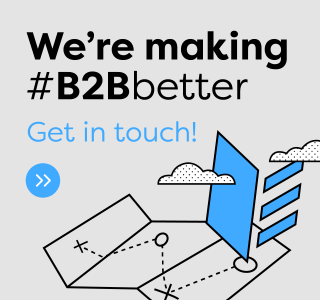In today’s climate, where hybrid selling models are the king of B2B e-commerce trends, brands can no longer skate by with sub-par systems. Implementing a modern B2B platform will have a tremendous impact on your entire organization. Reps will have access to a better order management process, retailers will be able to easily replenish and capitalize on trends through the B2B sales portal, and your wholesale channels will grow. However, like any upgrade or improvement, it will take a bit of work and a lot of planning to pull off. And while any reputable provider will offer assistance in your adoption, because it is such a large step here are a few best practices that will ease the transition.
Build An Org Chart!
Creating an org chart is essential. It’s important to identify all the rolls needed for a successful rollout. Adopting a B2B commerce platform can have a lot of moving parts, and you need to know all of them are being tended to.
It’s best to set up three roles - a marketing role, a tech role, and a project management role. These roles can be filled by the same person, but we recommend against it if at all possible. After all, the whole point is to minimize the likelihood of problems by spreading the responsibilities across a team.Stay In Communication!
Communication is key. Communicate, early and often, with your retailers, reps, and anyone else involved. Let them know what changes are coming, what effect they will have, and what is expected of them. This can, and probably will, include product folks as well as marketing teams.
You want to make sure everyone is ready when the switch is flipped. And just as retailer’s sell more of what they know, your reps and buyers are more likely to buy into the platform if they’ve been educated on it before-hand.
Prep That Data!
Finally, we recommend a specific effort to get your data ready for B2B wholesale e-commerce. Depending on your operation, this may already be close to done. In our experience though even the most prepared teams need to do a little extra work on their data.
For example, if you are not doing a direct integration, you’ll have to determine how your data will get into the system. If you are working through an integration, your job is obviously easier, but you’ll have to make sure your data comes through how you expect - new integrations (of any type) can reveal problems in your data that you’ve never had to worry about.
Work With The Right B2B Team
With collective decades of experience in building our wholesale B2B e-commerce solutions, Envoy B2B can easily support you through the entire implementation process.
“I was really impressed with the Envoy B2B team. Not only do they deliver an accessible UI that benefited our reps, but they were also able to tailor additional functionality upon request that better helped us create a consistent brand message,” explained Thomas Chow, CIO at Twisted X. “We were able to dive into the details of what we wanted and Envoy B2B made it happen.”
Ready For The Future
Hybrid selling models are here for the foreseeable future. Providing your reps and retailers with the powerful tools they need to sell the season is essential. That means making sure your B2B is up to snuff. If it comes up short, it’s time to replace it, and because B2B systems touch so much of your business, that can be tricky. But a good team, good communication, and good data will minimize the disruption, putting your brand well on the way to a successful rollout.
Ready to learn more about how Envoy B2B can improve your wholesale e-commerce strategies? Get in touch!


